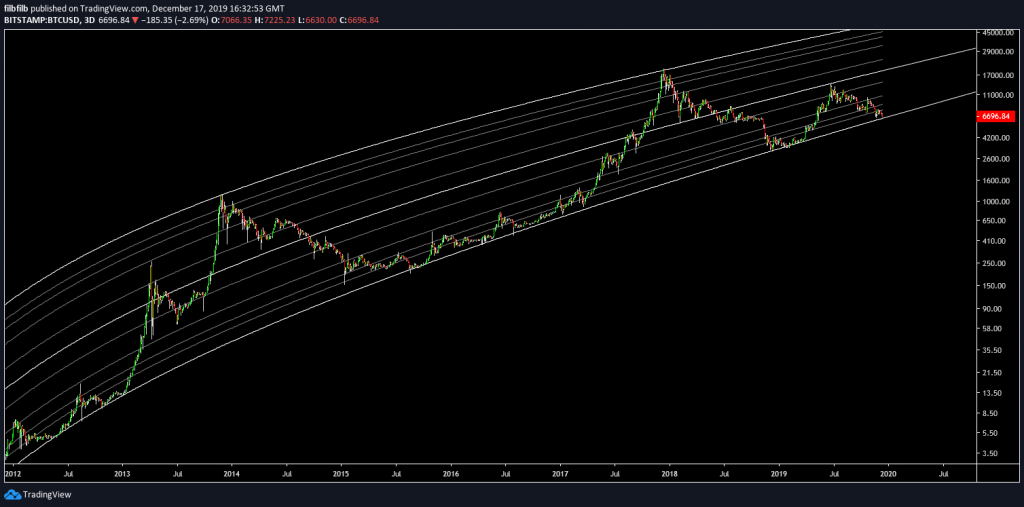Disclaimer: These summaries are provided for educational purposes only by Nelson Rosario and Stephen Palley...
Disclaimer: These summaries are provided for educational purposes only by Nelson Rosario and Stephen Palley. They are not legal advice. These are our opinions only, aren’t authorized by any past, present or future client or employer. Also we might change our minds. We contain multitudes.
As always, Rosario summaries are “NMR” and Palley summaries are “SDP".
[related id=1] Greenhouse v. Polychain Fund I Lp & Polychain 2030, 2019 Del. Ch. LEXIS 194[NMR]
The teeny State of Delaware is where many corporations and other business ventures are incorporated in the U.S. What people may not be aware of is that Delaware has a specific court system called the Court of Chancery that handles all corporate litigation in Delaware. That court is extremely influential in the corporate world. This case involves Polychain, a blockchain fund incorporated in Delaware, and Greenhouse a former limited partner in their fund. If you have been paying attention to crypto for awhile Polychain should be familiar to you, because at one point they had a $1 billion in assets under management. So, what’s this dispute about? $$$$. Records. Standing.
At one time, Harry Greenhouse was a limited partner in Polychain. On Nov. 13, 2017, Polychain requested that their limited partners consent to the use of side pockets (these are accounts that typically hold hard to value and often illiquid assets) to hold certain investments. What investments? SAFTs, obviously. For those that don’t remember a SAFT is a Simple Agreement for Future Tokens that was designed to be akin to the SAFE, a Simple Agreement for Future Equity that was created by Y Combinator. Two weeks later Greenhouse informed Polychain he wanted out, and requested a full redemption of his capital account. Greenhouse claims he was told his account would be redeemed one way, Polychain says it was another way. The valuation dispute was focused on those illiquid assets, i.e. SAFTs. There was some back and forth between the parties, and a wire transfer to Greenhouse that he accepted, a demand see the books, a refusal, and ultimately Greenhouse files this lawsuit.
What is the real issue here? Well, during the back and forth Greenhouse made a formal demand to inspect Polychain's books. Why would he do that? So, that he could determine if his redemption amount was what it was supposed to be. Polychain ignored this initial request, and once the lawsuit was filed stated that Greenhouse didn’t have standing to inspect their books.
Standing is the legal concept that a party has to have sufficient connection to a case and harm at issue to bring the lawsuit in question. Limited partners in Polychain have a right, read standing, to inspect their books and records. This is common in partnerships of all types. Looking at the timeline of events shows where Greenhouse went wrong.
Greenhouse didn’t make his demand to see the books until after he was wired his money redeeming his account, with 5% of his funds held as an audit holdback per the limited partner agreement, on Jan. 25, 2018. Over a month later Greenhouse made a formal demand to inspect Polychain’s books and records. Polychain did not respond. Greenhouse filed this lawsuit in March 26, 2018, and the lawsuit got stayed (put on hold) pending a determination of arbitrability. The arbitrator determined that the Chancery Court should answer the standing question pertaining to the record request, and the defendants filed a motion for the court to decide the case on the pleadings, which brings us to the present day.
Deciding a case on the pleadings, that is the allegations in the complaint, is generally possible when the court takes the facts in the complaint as true and view them in a light favorable to the nonmoving party. Here that means taking the facts as true and favorable to Greenhouse. In doing that the court still found that Polychain was entitled to a judgment in their favor on the standing question. Why? Simply put, Greenhouse made his records request too late. He didn’t ask to see the books to determine if the valuation of his account redemption was sufficient until three months after he informed Polychain that he wanted out, and over one month after he was informed his account had been fully redeemed. Greenhouse tried to claim that his audit holdback meant he still had an equity stake in the fund and he was thus still a limited partner, but the court was not convinced. His audit stake may entitle him to rights as creditor of Polychain, but not a partner. Ultimately, Greenhouse accepted the redemption, and didn’t request the records until it was too late.
Don’t feel bad for Greenhouse though. The arbitration proceeding is still pending, and he may get what he thinks he is due there.
The Block is pleased to bring you expert cryptocurrency legal analysis courtesy of Stephen Palley (@stephendpalley) and Nelson M. Rosario (@nelsonmrosario). They summarize three cryptocurrency-related cases on a weekly basis and have given The Block permission to republish their commentary and analysis in full. Part II of this week's analysis, Crypto Caselaw Minute, is above.
source https://www.tokentalk.co/The Block/former-limited-partner-in-polychain-files-suit-against-company-after-receiving-a-redemption-of-his-capital-account-5cf278b025e47a2259b27783

No comments:
Post a Comment